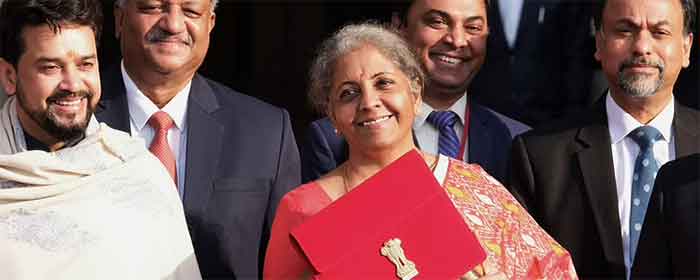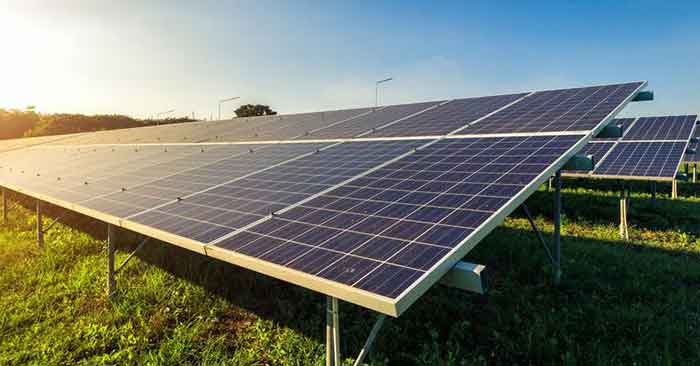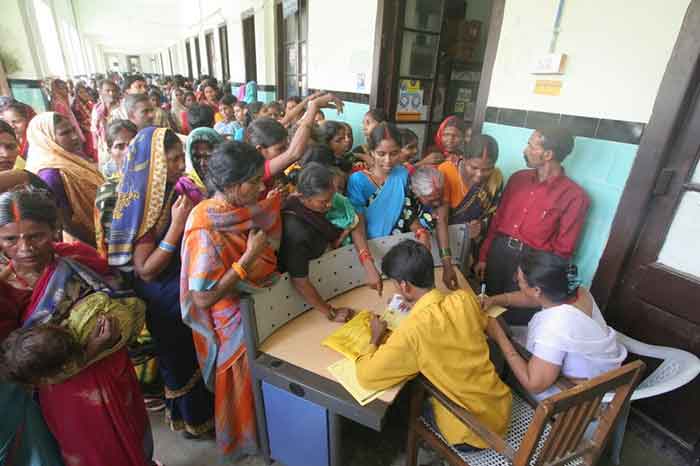
To
Smt Nirmala Sitharaman
Union Finance Minister
Dear Smt Sitharaman,
I welcome your statement in the latest Budget Speech on solar rooftops (“Through rooftop solarization, one crore households will be enabled to obtain up to 300 units free electricity every month….. The following benefits are expected….savings of up to fifteen to eighteen thousand rupees annually for households from free solar electricity and selling the surplus to the distribution companies“)
In the process of energy transition from fossil fuels to renewable energy, India ought to have laid stress right from the beginning on decentralised solar electricity generation systems (e.g. rooftops and solar irrigation pump sets) rather than on large centralised solar electricity generation plants, promoted largely by private companies.
Ill-advised, your Ministry and the Ministry of New & Renewable Energy (MNRE) have, over the last decade or so, adopted a deliberate policy to promote domestic and foreign private companies to capture solar energy generation at the cost of the development of decentralised energy systems. As a result, the capacity of centralised solar generation catapulted to 57GW, with around 20 GW in the pipeline, leaving little room for small individual electricity consumers to have any incentive or option to set up rooftops or irrigation pump sets.
It is therefore surprising that the present government at the end of a 10-year long tenure should suddenly come up with a scheme that seeks to cover a crore of households with rooftops!
It is far too little, far too late. The incentives offered to private promoters of solar plants are mind-boggling, such as “Central Financial Assistance (CFA) up to Rs. 25 lakh per solar park for preparation of Detailed Project Report (DPR), CFA up to Rs. 20.00 lakh per MW or 30% of the project cost, including Grid-connectivity cost, whichever is lower“, coupled with subsidised land and infrastructure provided by the States. Centralised solar plants also seem to enjoy a ten-year income tax exemption on all project earnings, permission to recover 40% of costs in the first year through accelerated depreciation, and a tax waiver on 100% of profits for ten assessment years from the initial assessment year. Additional concessions include sales tax, excise tax, and customs duty subventions.
As if this is not enough, the Ministry of Power has not only come in the way of States renegotiating outdated power purchase agreements with some of those corporate solar plant promoters to bring down prices but also forced DISCOMs to absorb almost 100% of the corporately owned solar electricity (irrespective of costs), at the cost of DISCOMs’ already stressed finances. The corresponding cost burden is passed on to DISCOMS and electricity consumers. To comply with the Ministry of Power’s somewhat unreasonable diktats, most DISCOMs have chosen not to promote decentralised solar systems and are reluctant to guarantee the purchase of surplus electricity at remunerative prices based on reverse metering.
In other words, during the last ten years, your government has literally “privatised” the sun and deliberately allowed private promoters to establish for themselves an overwhelming presence that has dwarfed decentralised generation, making it difficult for small rooftop/ irrigation pump set owners to survive.
In the overall interest of moving away from fossil fuels and moving away from highly polluting coal-based electricity generation, the government ought to have accorded the highest priority to decentralised energy systems over centralised solar plants, as more than 15% of electricity generated by centralised solar plants is lost through T&D losses and the cost burden of the T&D system falls on the consumers. Decentralised energy generation allows consumers to be proud electricity suppliers, rather than being at the receiving end of the power supply chain.
Centralised solar power plants need more than 1-2 acres of land per MW and therefore, they not only divert valuable land from other productive purposes but also displace people. They operate at Plant Load Factors (PLFs) of less than 17-20%. The long-term power purchase agreements (PPAs) signed by them with States have a built-in cost disadvantage for consumers, as they cannot factor in ever improving efficiencies in photo-electric technologies.
With the recent decision of the Ministry of Power to force consumers to install “smart” meters at their premises and bear the installation cost, as is to be expected, many private promoters who have already established a presence in centralised solar power generation have similarly taken over the supply and maintenance of smart meters, creating for themselves yet another opportunity to profiteer at the cost of the consumers. Decentralised solar power systems will put an end to this, to the advantage of crores of consumers.
If the Central Ministries and the States continue to cosy up to and nurture private promoters of centralised solar plants with subsidies and subventions, as well as statutory support, how can the government expect a crore of disadvantaged households to compete with them?
Is your government genuinely willing to promote small decentralised solar electricity generators? Is it ready to consciously discourage the mushrooming of large centralised solar plants promoted by the bigwigs of the corporate world? That calls for hard decisions, though belatedly. Otherwise, your Budget statement will merely remain wishful thinking.Some hard decisions that need to be taken to convert your Budget statement into tangible action are as follows.
- Withdraw monetary and other incentives to centralised solar plants, keeping in view that promoters of those plants bring in very little of their own funds but they largely borrow from already stressed PSU banks i.e. indirectly from public funds. Subsidising profit-earning corporates to profiteer further at the cost of the people is unacceptable.
- Launch a mission to promote rooftops/ solar irrigation pump sets through cooperative societies of consumers with mandatory public-funded reverse metering arrangements and a guarantee to buy their surplus electricity at tariffs equivalent to what a DISCOM would gain from it by avoiding the purchase of an equivalent quantum of far more expensive electricity from private power plants and power exchanges. It could be on the principle of “avoided cost” first introduced in the USA through the Public Utility Regulatory Policies Act (PURPA) of 1978
- The consumer-based cooperative societies for installing, maintaining and operating solar rooftops/ solar pump sets in each village or in a cluster of villages can be designed to function on the lines on which late Shri Verghese Kurien had organised milk cooperatives in Gujarat. This has to be carefully planned in consultation with the States and electricity consumer bodies, instead of the Centre trying to impose its schemes on the States in violation of the spirit of federalism.
- Simultaneously, the Centre, in close consultation with the States, should set up the necessary infrastructure required for procurement, installation and upkeep of solar PV panels for rooftops/ pump sets.
- As a parallel measure, the Centre and the States should develop the required facilities and technical solutions to recycle used panels and batteries.
- All this will not gain momentum unless both the Centre and the States collectively promote state-of-the-art R&D support systems to upgrade the solar PV technology on a continuing basis.
I hope that your government will address these issues urgently.
Regards,
Yours sincerely,
E A S Sarma
Former Secretary to the Government of India
Visakhapatnam















































